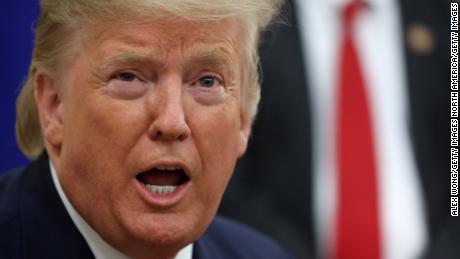One of Trump’s personal valets has tested positive for coronavirus

A member of the US Navy who serves as one of President Donald Trump’s personal valets has tested positive for coronavirus, CNN learned Thursday, raising concerns about the President’s possible exposure to the virus.
The valets are members of an elite military unit dedicated to the White House and often work very close to the President and first family. Trump was upset when he was informed Wednesday that the valet had tested positive, a source told CNN, and the President was subsequently tested again by the White House physician.
“We were recently notified by the White House Medical Unit that a member of the United States Military, who works on the White House campus, has tested positive for Coronavirus,” deputy White House press secretary Hogan Gidley said in a statement. “The President and the Vice President have since tested negative for the virus and they remain in great health.”
Led by notorious germaphobe, West Wing braces for coronavirus
Trump, who is a self-described germophobe, has chastised aides before who coughed or sneezed in his presence. He has claimed to rarely get sick himself.
Still, the White House has not enforced strict social distancing guidelines for staffers and few people inside the building wear masks during the day, including valets.
Still, a negative test and lack of symptoms isn’t a sure sign that someone can’t spread the virus.
Doctors say the incubation period for the coronavirus varies. The incubation period is the time that it takes from when you are exposed to the virus to developing symptoms. It ranges anywhere from 2-14 days. The average incubation period is estimated to be five days, according to the US Centers for Disease Control and Prevention.
Coronavirus pandemic in the US
People can be infectious, meaning they can transmit the virus to somebody else, up to two days before they start showing symptoms. Like any other virus, this can vary from person to person.
The coronavirus is spread between people mainly through respiratory droplets produced when an infected person coughs or sneezes. These droplets can then spread to the nose or mouth of people nearby or possibly be inhaled into the lungs, according to the CDC. This type of spread is more likely when people are in close contact with each other, within about six feet.
The White House did not say whether Trump would adhere to those guidelines after his valet tested positive. (CNN)

